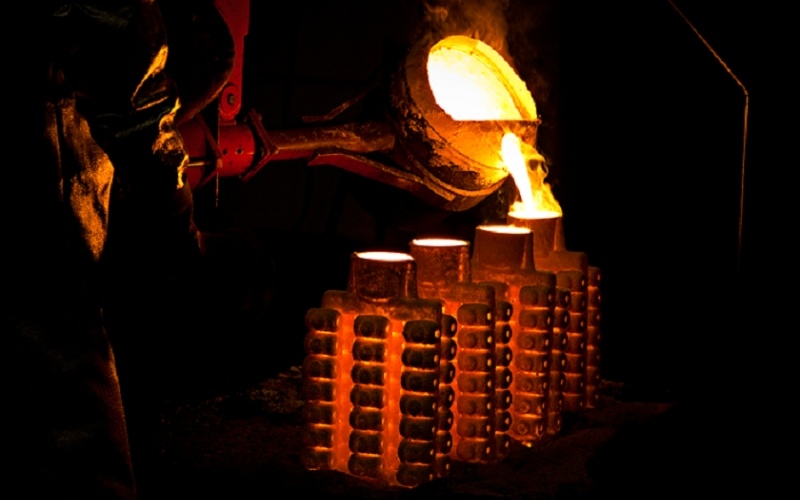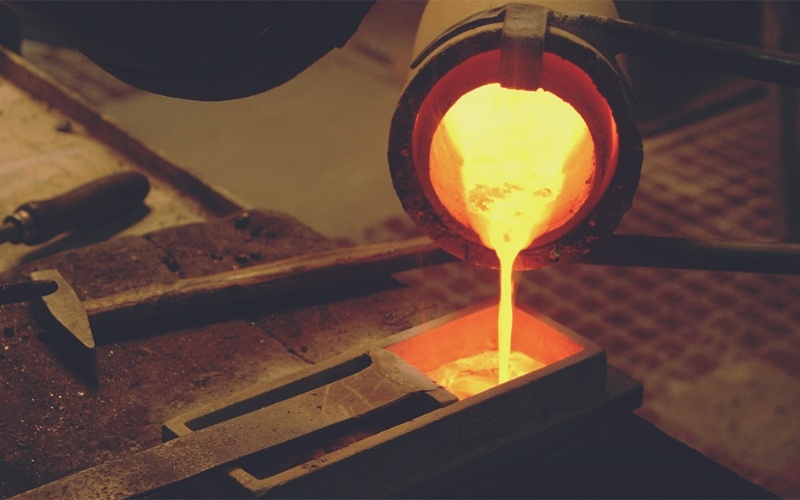A Comprehensive Guide of Metal Casting Processes - YAQI Casting
Release time:
2024-03-22
Metal casting processes are pivotal in manufacturing various components across industries, offering a spectrum of techniques tailored to diverse needs. Understanding the nuances of these processes, including their advantages, disadvantages, and recommended applications, is essential for optimizing production efficiency and cost-effectiveness.

Investment Casting: Precision Amidst Complexity
Investment casting, also known as lost wax casting, emerges as a premier choice when intricate designs and precise dimensions are paramount. This method accommodates both solid parts and complex, hollow cores with remarkable accuracy, making it indispensable in industries requiring intricacy and finesse.
Advantages:
1. Delivers close dimensional tolerances, ideal for intricate designs.
2. Suitable for both ferrous and non-ferrous metals.
3. Offers superior surface finish, reducing post-casting machining needs.
4. Enables the creation of complex shapes and thin walls.
5. Provides flexibility in design, particularly beneficial for alloys challenging to machine.
Disadvantages:
1. Higher associated costs compared to other casting methods.
2. Longer product-cycle time.
3. Limitation on the size of castable parts.
4. Despite its higher costs, investment casting's precision and surface finish often outweigh expenses, particularly when alternatives like sand casting or permanent mold casting fail to meet complexity requirements.
Sand Casting: Cost-Efficiency in Volume Production
Sand casting, a time-tested method leveraging silica-based materials, shines in scenarios demanding cost-efficient production, especially for small to moderate quantities.
Advantages:
1. Economical for small-scale productions, with inexpensive tooling.
2. Capable of casting large parts.
3. Versatility in casting both ferrous and non-ferrous metals.
4. Low post-casting tooling costs.
Disadvantages:
1. Lower dimensional accuracy compared to other methods.
2. Requires larger tolerances.
3. The surface finish for ferrous casts may not meet precision standards.
4. Often results in castings exceeding calculated weight.
5. Sand casting excels where strength-to-weight ratios permit, offering significant cost savings despite lower precision. It finds favor in applications prioritizing affordability and where its advantages mitigate machining costs.
Die Casting: Precision and Consistency at Scale
Die casting emerges as a powerhouse for high-volume productions necessitating precision and consistency. Its ability to deliver parts with minimal post-machining makes it a preferred choice for large-scale operations.
Advantages:
1. Excellent dimensional tolerance and part-to-part consistency.
2. Minimal post-machining requirements.
3. Cost-effective for high-volume production.
4. Well-suited for metals with low melting points, such as aluminum and zinc alloys.
Disadvantages:
1. High initial tooling costs, limiting feasibility for small-scale productions.
2. Mechanical properties of die-cast parts may not meet structural standards.
3. Not recommended for applications subjected to hydrostatic pressure.
4. Size limitations for castable parts.
5. While die casting requires substantial initial investments, its efficiency in large-scale productions justifies costs, especially when structural integrity isn't a primary concern.

Permanent Mold Casting: Balancing Efficiency and Affordability
Permanent mold casting strikes a balance between cost-efficiency and precision, offering dense, pressure-tight castings at a lower cost than die casting or investment casting.
Advantages:
1. Economical alternative to die casting and investment casting.
2. Produces dense, pressure-tight castings with closer dimensional tolerances.
3. Reusable molds enable rapid production with minimal scrap.
4. Ideal for non-ferrous metals.
Disadvantages:
1. Limited to non-ferrous metals.
2. Higher tooling costs compared to sand casting.
3. Competitiveness diminishes with complex designs requiring multiple sand cores.
4. Permanent mold casting thrives in hydrostatic pressure applications and large-scale productions, providing a compelling alternative where precision and efficiency intersect.
Plaster Casting: Precision with a Polished Finish
Plaster casting, akin to sand casting but employing gypsum-based materials, caters to applications demanding precision and superior surface finish at a lower cost than investment casting.
Advantages:
1. Closer dimensional tolerances than sand casting.
2. Smooth, as-cast finish without extensive post-processing.
3. Cost-effective for casting larger parts with intricate details.
4. Enables thin, as-cast walls.
Disadvantages:
1. Requires a minimum draft angle.
2. Higher costs compared to sand casting.
3. Replacement of plaster molding materials may be necessary.
4. Despite its higher costs relative to sand casting, plaster casting offers superior surface finish and precision, making it a compelling choice for applications prioritizing aesthetics and dimensional accuracy.
In Conclusion:
Navigating the landscape of metal casting processes entails careful consideration of factors such as production volume, design complexity, and budgetary constraints. Each method presents a unique blend of advantages and disadvantages, offering tailored solutions to diverse manufacturing needs. By leveraging the insights provided, manufacturers can optimize their casting processes, striking a balance between efficiency, precision, and cost-effectiveness.
Call to Action:
Ready to embark on your next metal casting project? Whether you're seeking precision, cost-efficiency, or superior surface finish, Yaqi Casting stands ready to bring your vision to life. With a wealth of expertise and a commitment to excellence, our team specializes in custom metal casting work tailored to your unique requirements.
Contact us today to explore how Yaqi Casting can elevate your manufacturing processes and deliver exceptional results. From initial consultation to final product delivery, trust Yaqi Casting for unparalleled craftsmanship and unwavering dedication to your success. Let's bring your ideas to fruition together.
Key words:
Recommended News







